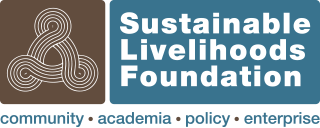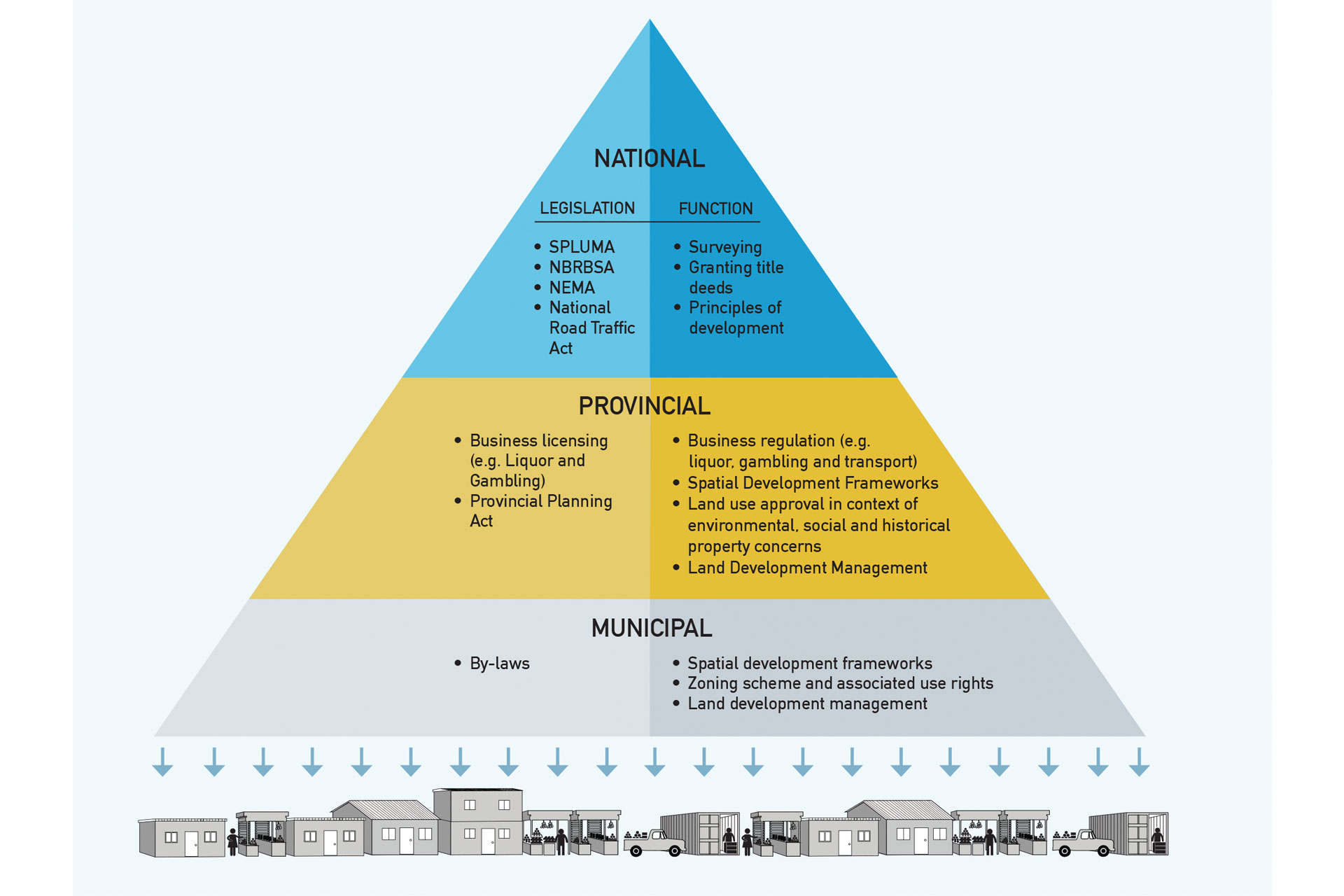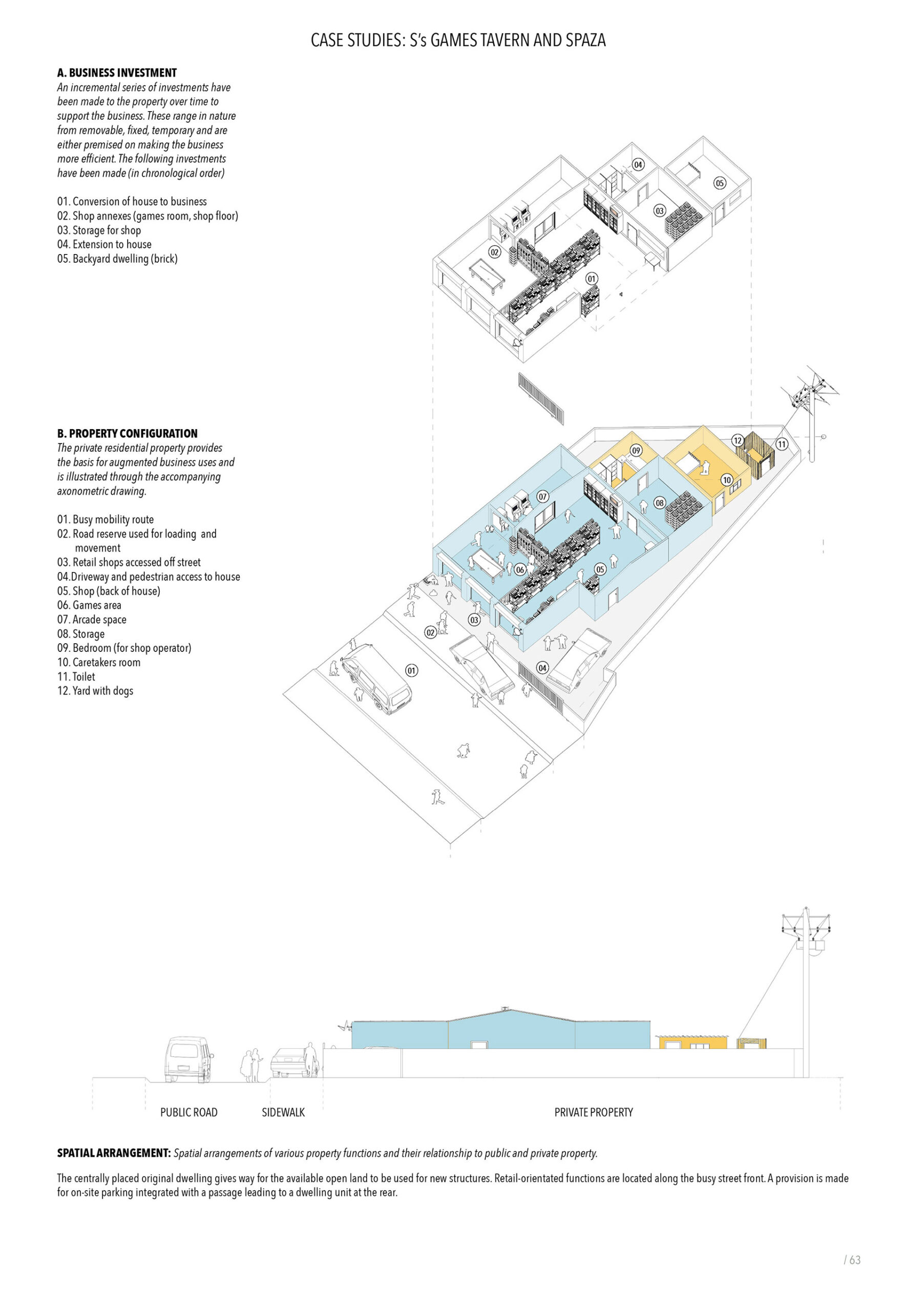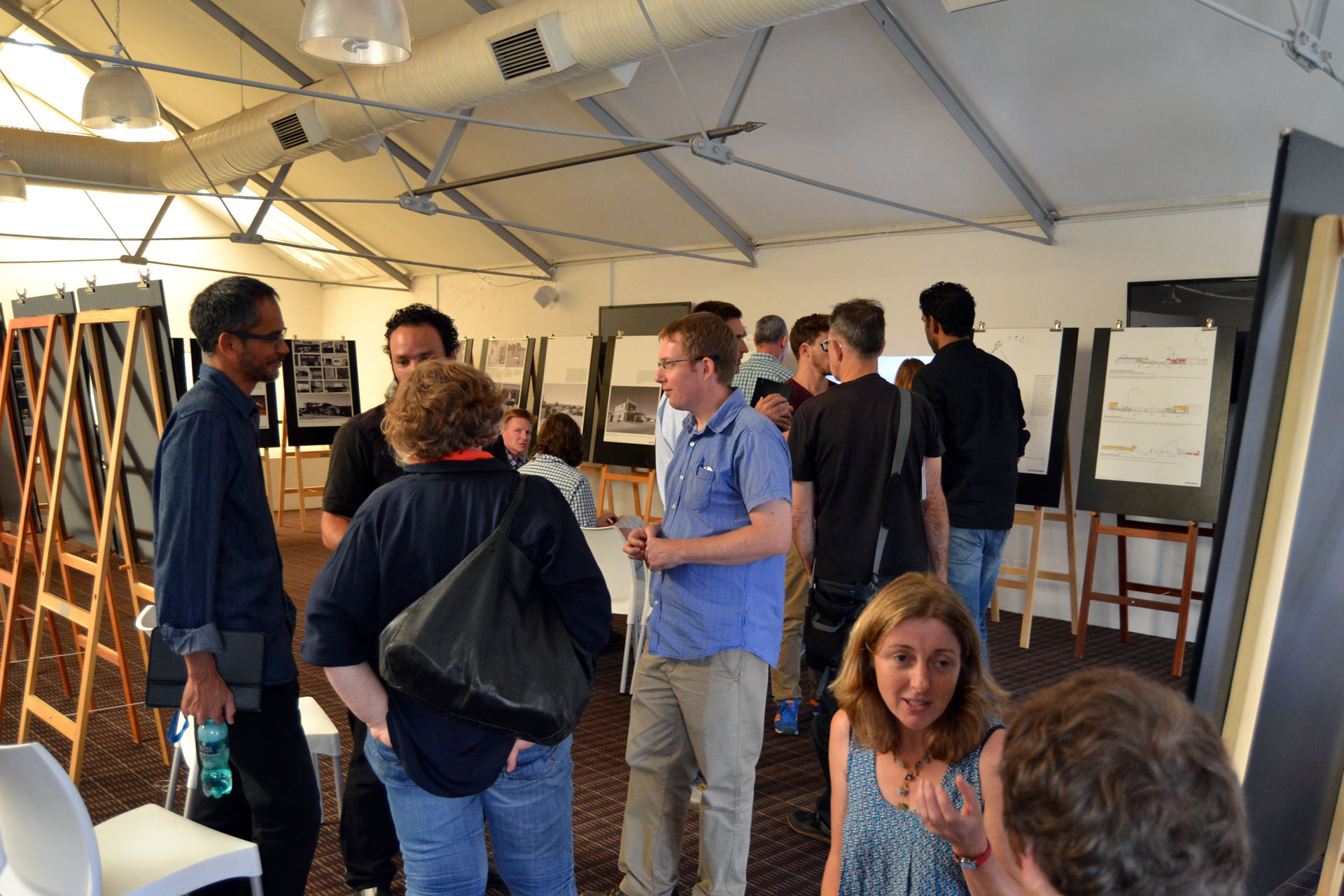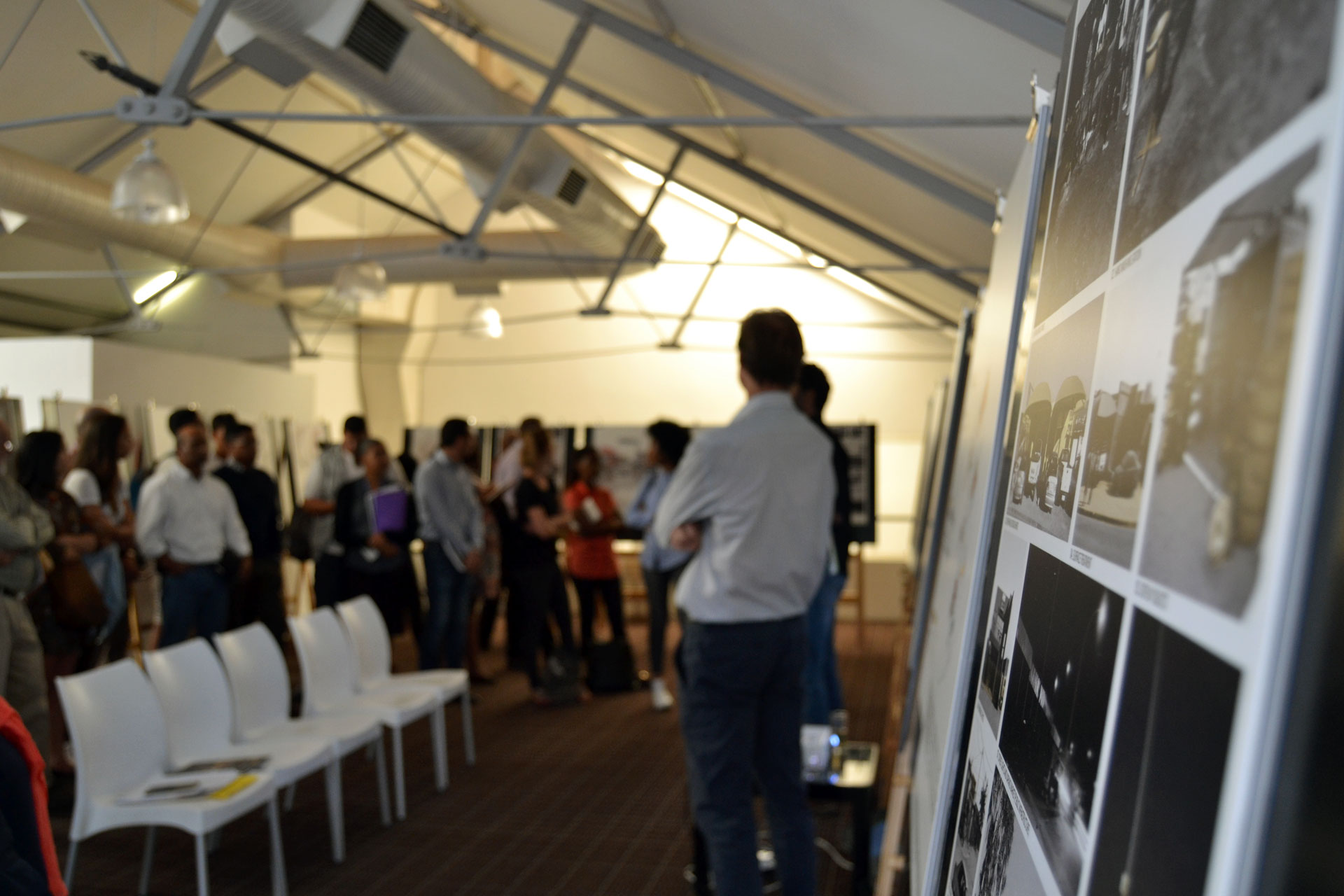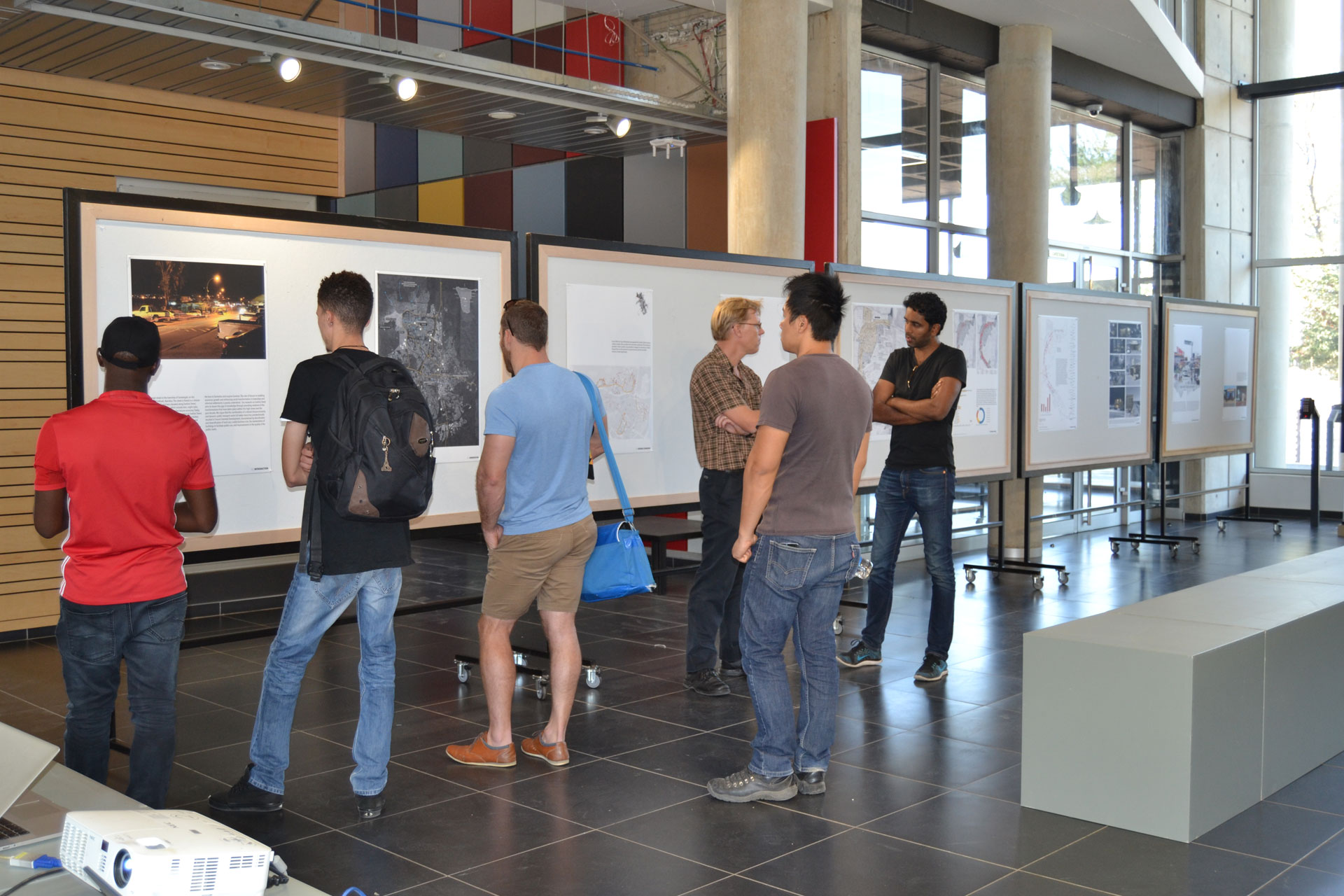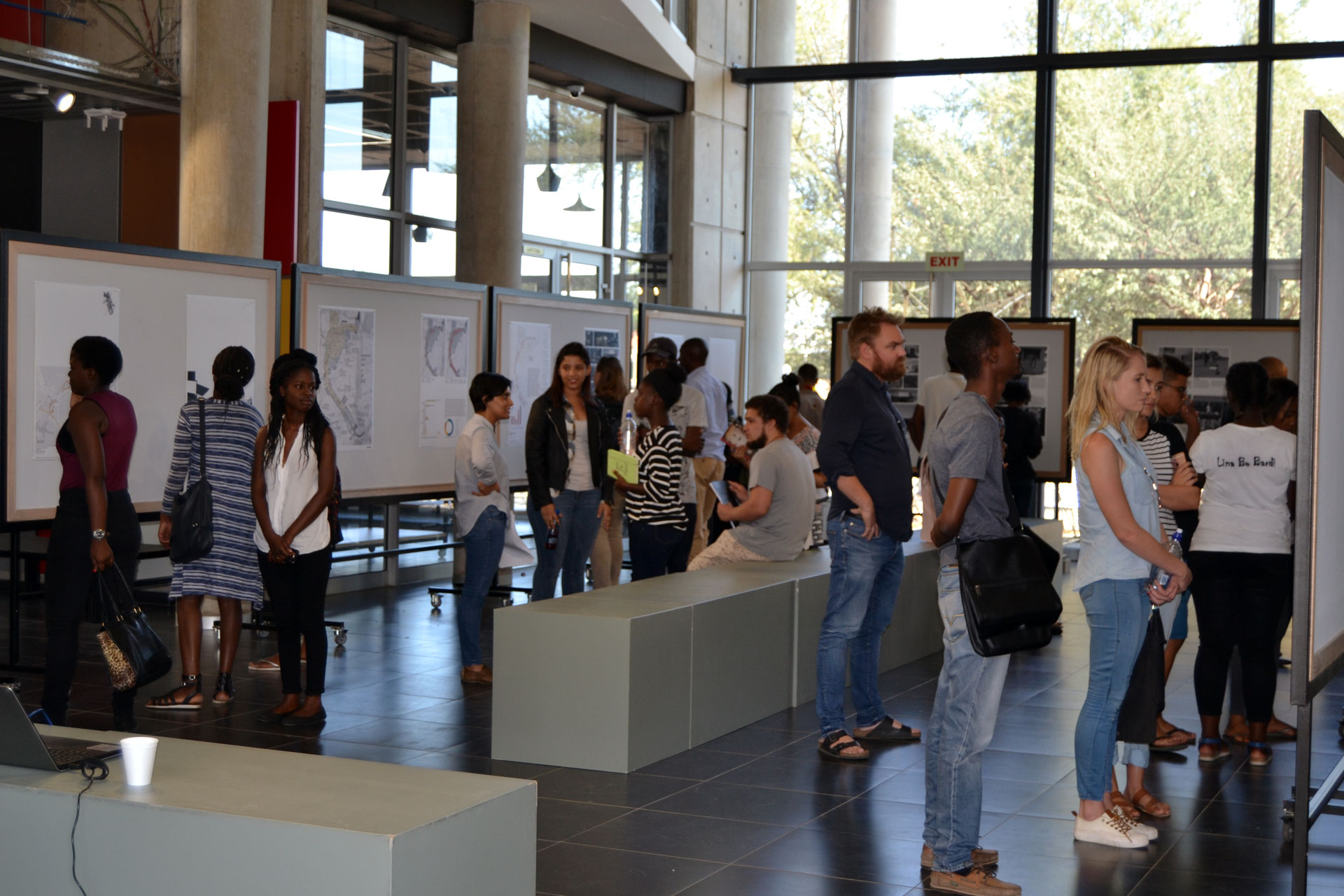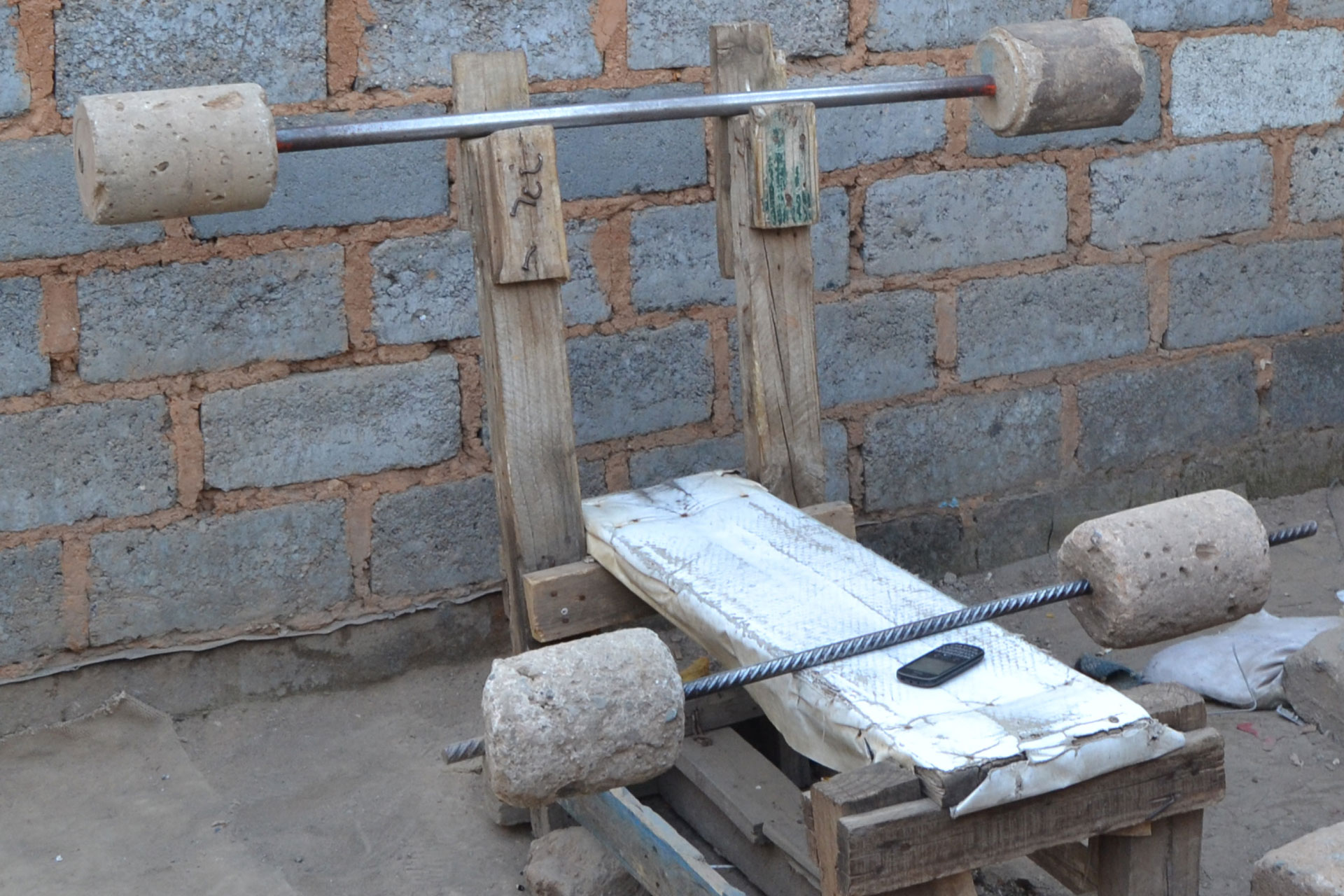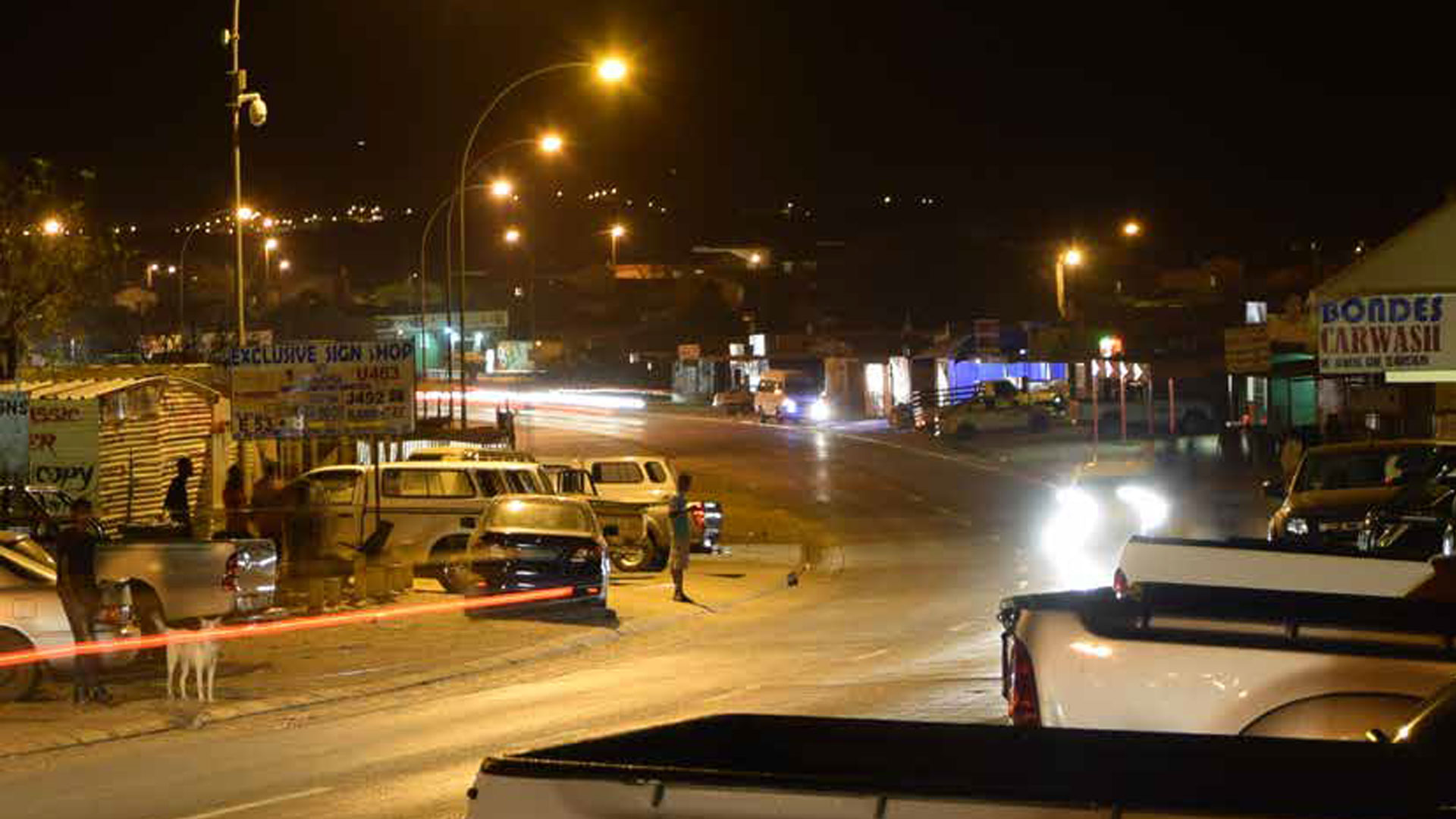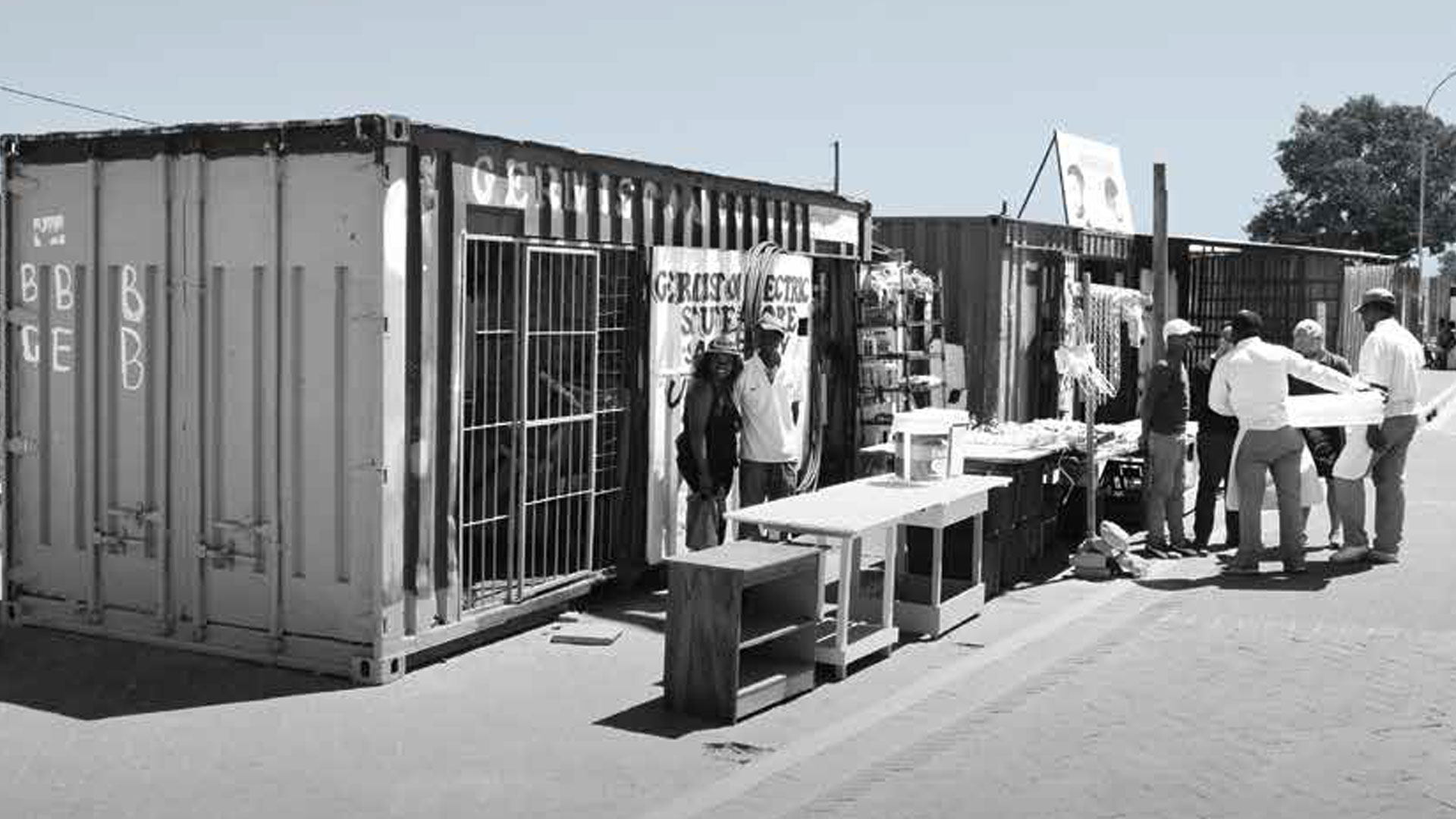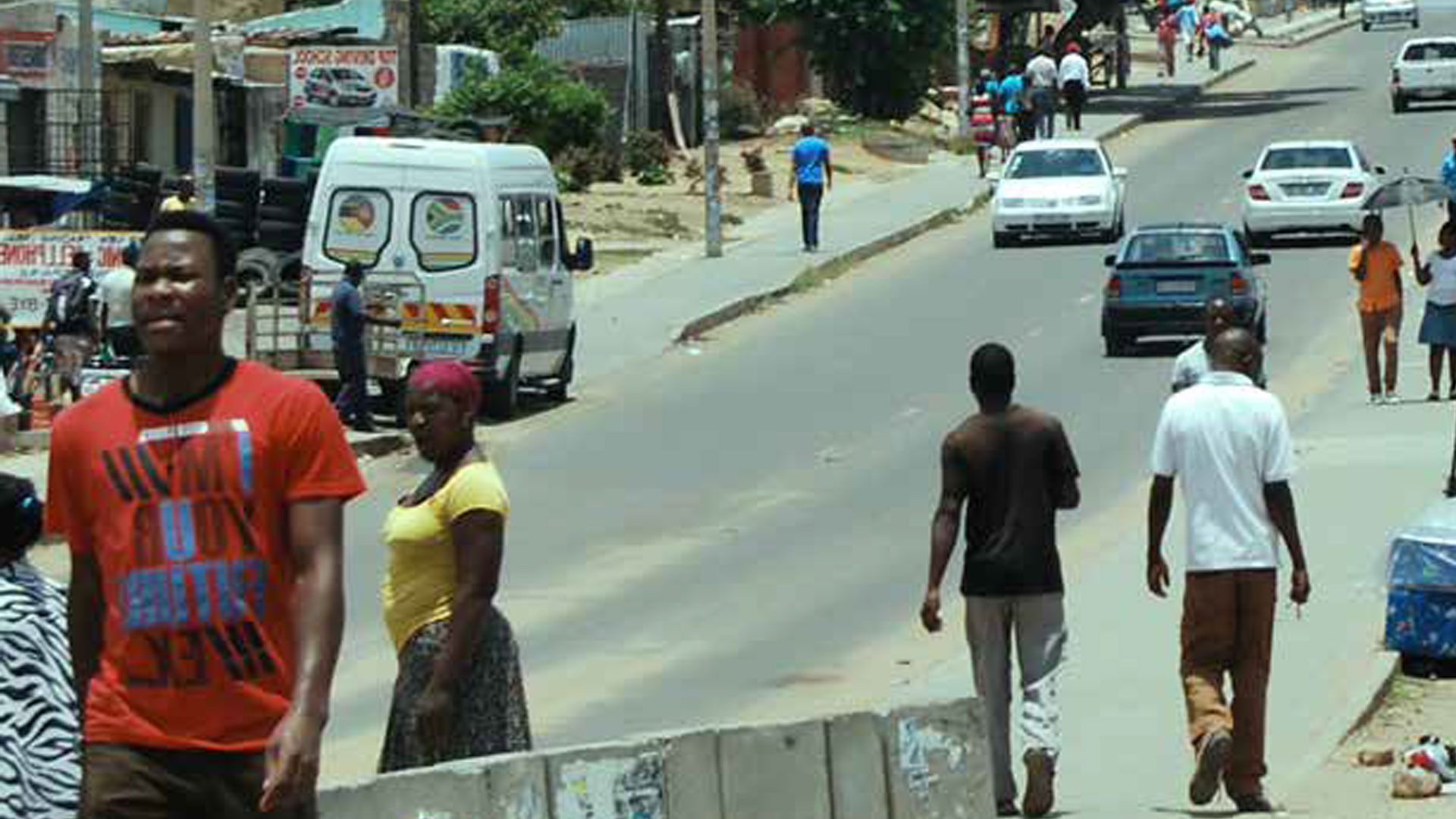Unlocking Land for Micro-Enterprise Growth (ULMEG)
The ULMEG project sought to investigate and highlight the multiple ways that land use systems impact on economic growth and business in marginalised urban communities. The project addressed a range of spatial challenges that township businesses face including the lack of commercial land available in townships; land tenure insecurity; inflexible land use management schemes (zoning); the misalignment between micro-enterprises business requirements and municipal development initiatives; rigid property markets; and inappropriate spatial development frameworks.
The ULMEG project undertook research in Delft (Cape Town), Eveline Street (Katutura), and Ivory Park (Johannesburg). The research findings were disseminated in research reports, academic publications and visual narratives. The project facilitated a series of events, or ‘Solution Labs’, to support a policy engagement process. These Solution Labs provided fertile ground for deepening understandings of the problems experienced around land systems in townships and solutions to these problems through case studies generated in the ULMEG research. The ULMEG project has helped to shape a new generation of land-use development planning and its application in township economic development strategies.
Location:Delft (Cape Town); Katutura (Windhoek), and Thembisa (Ekurhuleni)Duration:2015-2017Partners:SAB, UCT REDI Programme, Urban Works
Project outputs and resources
Post-Apartheid Spatial Inequality: Obstables of land use management on township micro-enterprise formalisation. A Report by the Sustainable Livelihoods Foundation 14 August 2017
The Impact of Land Systems of Micro-Economic Investments. Ivory Park case studies
